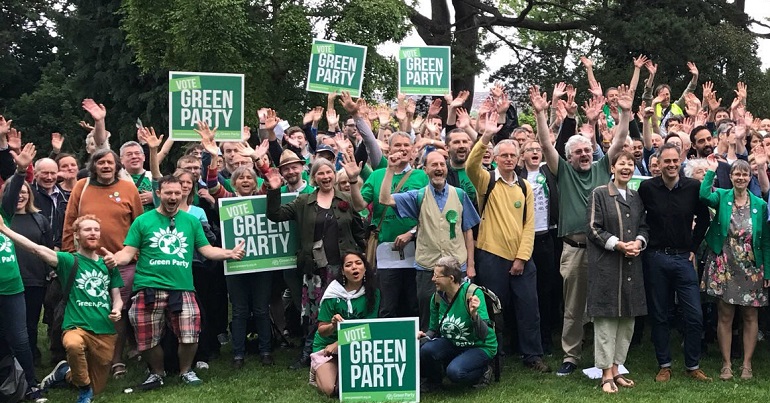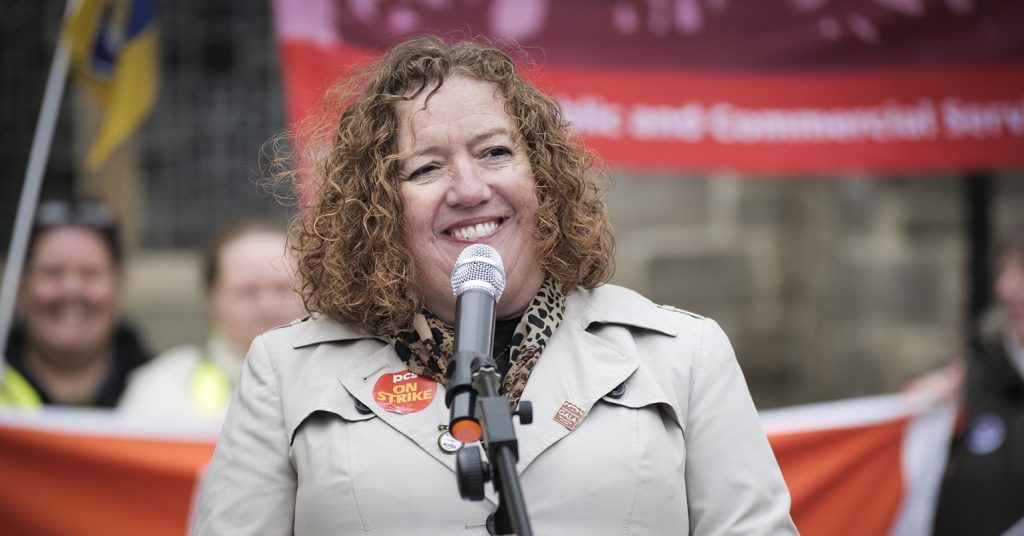The Green Party is better than “better is possible”

Last weekend I switched my computer and, opening a browser window, found my way to Instagram. I expected to see holiday snaps from school acquaintances I barely remembered, scattered among vaguely heartwarming eat-pray-love sunset photos. In fact, I’m not certain what I was expecting.
For one thing, I was not expecting to see a Green Party event featuring a management consultant.
On Wednesday 16 September, the Party will host an event entitled ‘Regenerative Leadership and Our Democracy, Better is Possible’. At 6pm, the newly elected Green Party co-leaders and deputy leader will speak on this somewhat nebulous topic. They will discuss how “better is possible when we confront the challenges of co-creating a regenerative future with vision, collaboration and creativity.” They will be joined by Giles Hutchins, who is billed as “a pioneering practitioner and senior adviser at the forefront of the evolution in leadership that promotes a more regenerative and equitable world.”
Digging a little deeper into Hutchins, we find that he spent over a decade as management consultant, programme manager and business practice lead at the international management consultancy KPMG. He has since been Global Head of Sustainability for Atos, an IT services firm. The latter firm is perhaps most notorious for its role in the Department of Work & Pensions’ much-despised Work Capability Assessment – its algorithmic process for determining who is and who is not deserving of the Employment & Support Allowance.
Before I go any further, I should stress that I am sure that Giles is an affable soul and I do not blame him for taking every opportunity to advertise his business, even to an unsuspecting audience of environmentalists. I wish him every success in this latest business development exercise. Rather, my concern is over why exactly he was invited to speak at a Green Party event at all.
The Regenerative Leadership event is the latest in a series of events under the moniker of ‘Better is Possible’. Better is Possible appears to be a tagline linking the Green Party’s political educational events and discussions. These events have taken place on the subjects of housing, health, the future of work, and others besides. They have featured some fantastic campaigners, activists, and experts. Unfortunately, the overall lineup of speakers and guests raises serious questions over with whom accountability for the political direction of the series sits.
Let us take a particularly stark example. On 12th August, the live session Work is a Green Issue featured the excellent Natalie Bennett alongside three guests. Between them, they boasted current and former job roles as charity executives and Directors of Fundraising, Directors of training consultancies, and even advisors to wealth managers and experts in whatever passes for so-called ‘sustainable investment’ these days. At the same event considering the future of work (“How can we regenerate meaning and the quality of people’s lives while we regenerate our planet?”) not a single trade unionist was featured.
I would stress again that this is by no means a reproach to these speakers, for having the temerity to respond to a kindly invitation and spend a weekday evening addressing people on topics they no doubt feel very passionately about. Many of them should, indeed, be welcome to address Green Party events and offer useful perspectives.
This is, rather, an attempt to highlight the problems inherent in platforming certain voices and not others. By promoting business people and not trade unionists – for example – and by playing to the credentials of those who advise capitalists and managers on a corporate ideal of ‘sustainability’, it reinforces outdated and ultimately hopeless ideas of how social and climate justice could actually be achieved.
It also fundamentally limits who we as a party can reach and appeal to. Events such as these are an indispensable opportunity to reach out to social constituencies that Greens have often neglected to bring to the centre of our movement. Platforming workers, renters, and others in society who can speak authoritatively to the struggles facing millions in this country, in place of kindly consultants would be a strong start. Doing this could also serve to keep discussions neatly grounded in those struggles and help keep them from entering the realm of the hopelessly abstract. The Instagram blurb to the session ‘Work is a Green Issue’ speaks of “making our working lives greener” and “regenerating meaning” in people’s lives. At a time when people are seeing their jobs axed and their conditions reduced to desultory levels, hearing directly from workers engaged in active struggles might have kept our discussions on what is immediately and concretely relevant to people’s working lives. Anyone facing redundancy could be forgiven for thinking that “regenerating meaning” is a luxury, when they are staring poverty in the face.
The young climate strikers, on whom everyone pours compliments but to whom few seem to really listen, appear to understand how social and climate justice will be won. After attending the climate strike in London on 20 September 2019, I spoke to a friend and colleague about what we’d seen, heard, and felt on the day. He attempted to epitomise the political content of the young speakers’ addresses. “It was save the planet, defend the migrants, fuck capitalism – in that order.” And crude though it was, his summary was on the money.
This unashamedly folksy anecdote reflects the conclusion that in order to win climate justice and social justice, we must confront and overcome the social order in which the greatest injustices of our time are reproduced and sustained. It is a conclusion that is not reached quickly by those with institutional stakes in the existing social order. It is a conclusion, however, that has been reached by thousands of young people radicalised by powerful social movements for racial and social justice. Once again, to offer a ridiculously short summary: large groups of organised people with joint understandings of a social system and joint interests in overcoming it; those are the fundamental organs of social progress.
Now, it might be unreasonable to expect of a series of online events that they should reflect all this, all the time. It is not unreasonable, however, to expect that Green Party events at least do not contradict these basic principles. Featuring prophets of ‘sustainable’ capitalism, while neglecting to feature democratic and organic representatives of those at the knife point of 21st century exploitation, threatens to do just that. Platforming management consultants, while not managing to consult even a solitary union voice, gives entirely the wrong impression of what the Green Party is and should be.
As a party member I have met dozens, perhaps hundreds of other members. Almost all of them are fantastic. I have too many excellent comrades and friends here to take this as an indicator of where the membership is, or who they are. Incidentally, I have seen enough disquiet in party groups about the political branding of these events to know that I am not the only one who has reached this conclusion. More to the point, the party’s policies and in particular our radical young members show that we are united by our belief that a better future will be won by a powerful popular movement, not through cross-sector coffee mornings or NGO love-ins.
The question, then, is where does accountability for the political makeup, direction, and implications of this series sit? Direction does not appear to come from the membership or conference. In any event, I would urge those who do exercise influence over the series to consider how and why these events in their current makeup are deficient.
Few things are perfect. In a party whose members hail from a variety of traditions, we cannot expect every single thing to be exactly to our taste. Sadly, these deficiencies go beyond mere taste and have concerning implications for the basic political direction of party activities. We do not look for or expect perfection. But better than this must be possible – and I hope that can be reflected in future activities.
PS. We hope you enjoyed this article. Bright Green has got big plans for the future to publish many more articles like this. You can help make that happen. Please donate to Bright Green now.
Image credit: Bristol Green Party




The only way this will work politically is if the Labour Left and the Greens can somehow combine and work together. They are close but class difference keeps them apart.
We need to engage with everyone who shares, or is open to listening to, our analysis of the issues facing the world, and our vision for addressing those issues and achieving a socially just and environmentally sustainable world.
And the party does engage with a wide range of people and organisations, for example the last London Green Party event had speakers from the Bakers, Food and Allied Workers’ Union and from Fuel Poverty Action, while the next event has a speaker from Unite, and a temporary accommodation resident speaker.
So I’m somewhat disappointed that the author of the article should be proposing that we rule out engaging with someone just because they happen to have a particular job title, or representatives of business. And there is also a general anti-business undertone to the article, when in fact the Green Party notably champions small, local, sustainable business.
Many people in business (large and small) are increasingly aware of the challenges the world faces in the 21st century, and that the traditional parties are unable to offer 21st century solutions. I’d say we have traditionally under-engaged with business, and we need to remedy that.
If we want to succeed in delivering systemic change, we need to have the courage and openness to engage with people from all walks of life, listen to them, challenge them, and ultimately build a broad coalition for our radical agenda and for the systemic change that we need to deliver that.
Thank you for a powerful and cogent article. The ecological crisis cannot be solved as long as the driving forces of the world economy are monetary profits and stimulating maximum consumption.
A Green Party that restricts itself to gaining representation through a moribund electoral system that is designed to squeeze out minority parties is on the wrong track.
Acceptance of the ecological crisis is now general. This is good, but it does not show haw we might try to find remedies.
We should be exposing how our own behaviour and shopping habits is linked to environmental degradation, and run nationally coordinated campaigns to protest at retail chains with harmful environmental effects in their offer. This might start to change the helplessness that people feel in the face of the environmental dragon.
Above all, we should have as our core policy a massive redistribution of wealth, as justice, but also as the only way to break with the blind consumer machine that drives our society.
A leadership team elected by 15% of members has no legitimacy.The Green Party is a zombie party. And no amount of “regenerative” consultant will make any difference. Only less money for campaigns.
How the Green Party expects to win over workers to a Just Transition that is the only way to fight climate change is beyond me if we exclude workers and their trade unions from our discussions.
Let’s be serious not an irrelevant middle class sect that don’t address the real issues to change society.
This article dropped into my inbox during the local weekly meeting of Extinction Rebellion on Zoom. Someone there posted a link to Sir David Attenborough‘s recent article which envisages “The total collapse of the living world” by 2100, after 4º of warming (www.dailymail.co.uk/news/article-8726155/SIR-DAVID-ATTENBOROUGH-reveals-born-today-witness-sixth-mass-extinction.html). But I have looked at the blurbs of these GP discussions and I have to say, I have not been inspired to attend any of them. However, I did go to London for XR’s protest in Parliament Square. And later this evening I will rummage through my kitchen cupboards and toolstore for things to be taken to the HS2 camp this weekend. At the age of 66, I am starting to actively support this sort of action for the first time in my life. This evening a longstanding GP member referred to Greenpeace 30 years ago, “when it was still radical.” The Green Party too needs to rediscover its sense of urgency, anger and fear for the future.